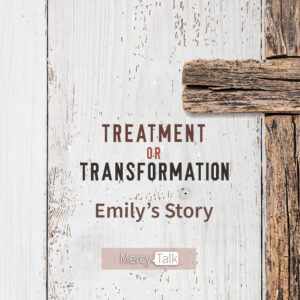- Reclaiming the good in the word “no”
- How to recognize the part we play in a manipulator’s game (and walk away)
- Leaving self-blame and guilt behind when dealing with a manipulator
Hey everyone, welcome to Mercy talk! We are in the very last episode of our “How to Deal with Difficult People” series and it has been an interesting ride to say the least. Today we’re not backing off and we’re gonna be talking about “The Manipulator”. Most of us know how we feel when we’re in this kind of relationship but just so we’re on the same page, the dictionary’s definition of a manipulator is, “a person who controls or influences others in a clever or unscrupulous way.”
This behavior is really something we’ve seen in all the types we’ve talked about this month. So, whether it’s playing the victim or trying to control the decisions of others, manipulative people all hate one thing…honest communication. Other things to be aware of here are “gaslighting” (a manipulators game in causing someone to question their own sanity) and even elaborate gifts and favors with hidden strings attached. These are red flags to notice when you start to feel unsafe and that someone isn’t respecting your boundaries. Speaking of boundaries, Mercy is a firm believer that they are absolutely essential not only for healthy relationships but also to protect us from unhealthy ones. We often refer to the book by the same name, “Boundaries” by Dr. Henry Cloud and John Townsend and highly encourage everyone to read it.
It should also be noted that these conversations are not irrelevant from within the church. People whom you look up to and trust may try to twist and make things sound more spiritual in order to get you to do what they want. However, this is called spiritual abuse and is not from God or His desire for you. If you think you may be in a place where spiritual abuse is taking place, seek help from a professional, licensed, Christian counselor. Other ways to protect yourself are:
- Staying in the Word and knowing it for yourself
- Staying in a community that allows room for discussion, questions and even healthy confrontation
- Using the word “no” as well as distance to establish boundaries and expectations
As we wrap up this series, we hope you found practical and encouraging tools to dealing with difficult people in relationships. While others can currently do things to hurt us, we also play a role in our own mental, physical and emotional health. Until next time, have a great week!





